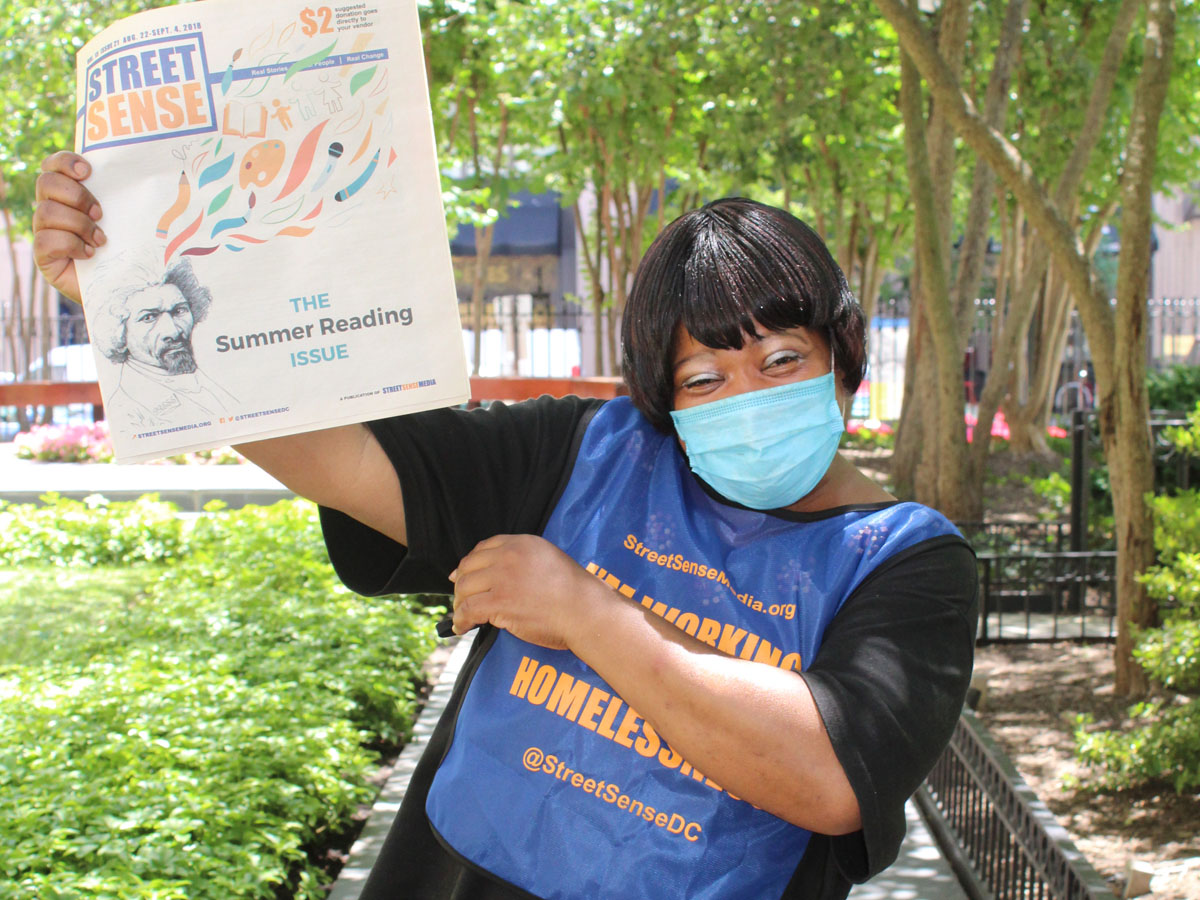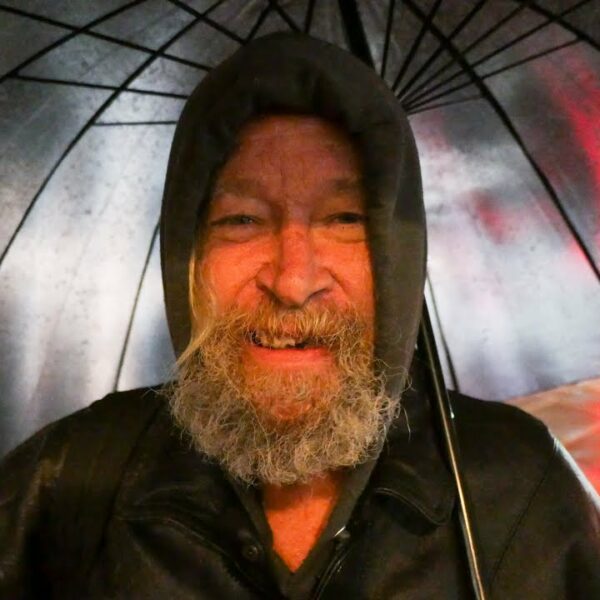Street papers around the country are working double time to help their vendors stay safe during the pandemic and close income gaps. For safety and to combat less traffic, one Nashville paper is partnering with a distillery to package and distribute hand sanitizer.
Street papers are generally local publications, often distributed by a charity or organization that benefits people experiencing homelessness. Depending on the paper, they may employ homeless individuals as vendors, selling the paper in public. Reporters experiencing homelessness may also cover local news. Nashville’s publication The Contributor employs vendors and is taking extra steps to help them during the pandemic.
Cathy Jennings, Executive Director of The Contributor, said they distributed face masks with the paper’s “Happy to Contribute” messaging to keep vendors and their customers safe. Earlier this week, they began giving out hand sanitizer. The Contributor is part of the International Network of Street Papers. Jennings got the idea to partner with a hand sanitizer distributor after a colleague at another paper mentioned their efforts. She reached out to local Big Machine Distillery, and a partnership was formed.
“It was a great idea. We don’t have the volume to do that, but I knew that Big Machine made their own,” Jennings said. “They have been so gracious and so helpful. They designed and donated the first 1,000 bottles. It will really be handy for the folks in Nashville to have sanitizer and masks available.”
Addressing Decreased Sales Due to Reduced Foot Traffic
Jennings said their team is lucky that to their knowledge, no vendor has been diagnosed with COVID-19. Because many people experiencing homelessness have underlying health conditions, some of their vendors have been sheltering in place as best they can. Those still able to work, though, are struggling with reduced foot traffic and fewer customers, generating less income. Jennings said the publication is addressing those problems, too.
“We assumed their income was cut,” Jennings said, adding they cut the price of the paper to vendors by 50 percent. They also launched mailed subscriptions and digital editions in March as well as Venmo payment last year. “We started a vendor support fund and have been handing out grocery cards. We also have housing navigators who [help with] rental assistance.”
Jennings said that at one point during the pandemic shutdown, The Contributor was the only street paper still printing in the U.S., and one of two in the entire world.
“That’s a big deal,” Jennings said. “Nashville supports our program.”
After temporarily pausing publication, some papers are back up and running, like Street Sense. Maddie Cunningham, Director of Development and Communications at Street Sense, said vendors lost critical income while the paper was paused. She also said the pandemic has had a “profound effect” on them. Now back in print, Street Sense continues to serve those experiencing homelessness in multiple ways in its hometown of Washington, D.C.
“We’ve assisted people with accessing testing. Our offices stayed open through the stay-at-home orders because in addition to the paper, we provide essential services to those experiencing homelessness,” Cunningham said. “We were able to provide a safe place for some folks to stay during the day, and provided case management services.”
Cunningham said the organization also provides PPE (personal protection equipment) to vendors at no cost, distributing gloves, face masks and hand sanitizer. They check the temperature of every person who enters the office. While no vendor has been diagnosed with COVID-19, they have safety measures in place should that happen.
Like The Contributor, Street Sense relies on partnerships to provide services and resources, working with both government and private groups. Their partners provide healthcare, behavioral health treatment, housing, education, employment, and other needs. The paper also started a fund to help bridge the income gaps vendors experienced from March to July due to the suspension of printing and sales.
“Despite the challenges that COVID-19 has presented, Street Sense Media remains fully committed to the well-being and long-term stability of each vendor,” Cunningham said.
Both papers are taking measures at a critical time, as the U.S. sees record-level increases in COVID-19 infections. The U.S. is currently surpassing most countries around the world in new cases. While other countries open schools and public shops because their case numbers have dropped dramatically, the U.S reported more than 65,000 cases July 15th. The total number of deaths is again on the rise, with 1,413 reported July 15th versus 250 deaths June 28th.
People experiencing homelessness often have less access to healthcare as well as underlying health conditions. They also bear the emotional distress of being unhoused. As a result, street paper vendors (and all homeless individuals) are at an acute risk for contracting COVID-19. Cunningham said she knows a few Street Sense vendors stay at shelters where others have been diagnosed with coronavirus, making the paper’s safety measures all the more important. The pandemic affects editorial decisions, too, and The Contributor will continue to cover hot-button pandemic issues.
While street papers may not solve every problem homeless individuals face, their efforts in providing income and stability are important. They are also asking the right questions.
“We will continue covering how this affects the homeless population especially. It’s important to have that voice present,” Jennings said. “What are your rights with your landlord? How are shelters dealing with the virus? I mean, how do you shelter at home when you live on the streets?”













